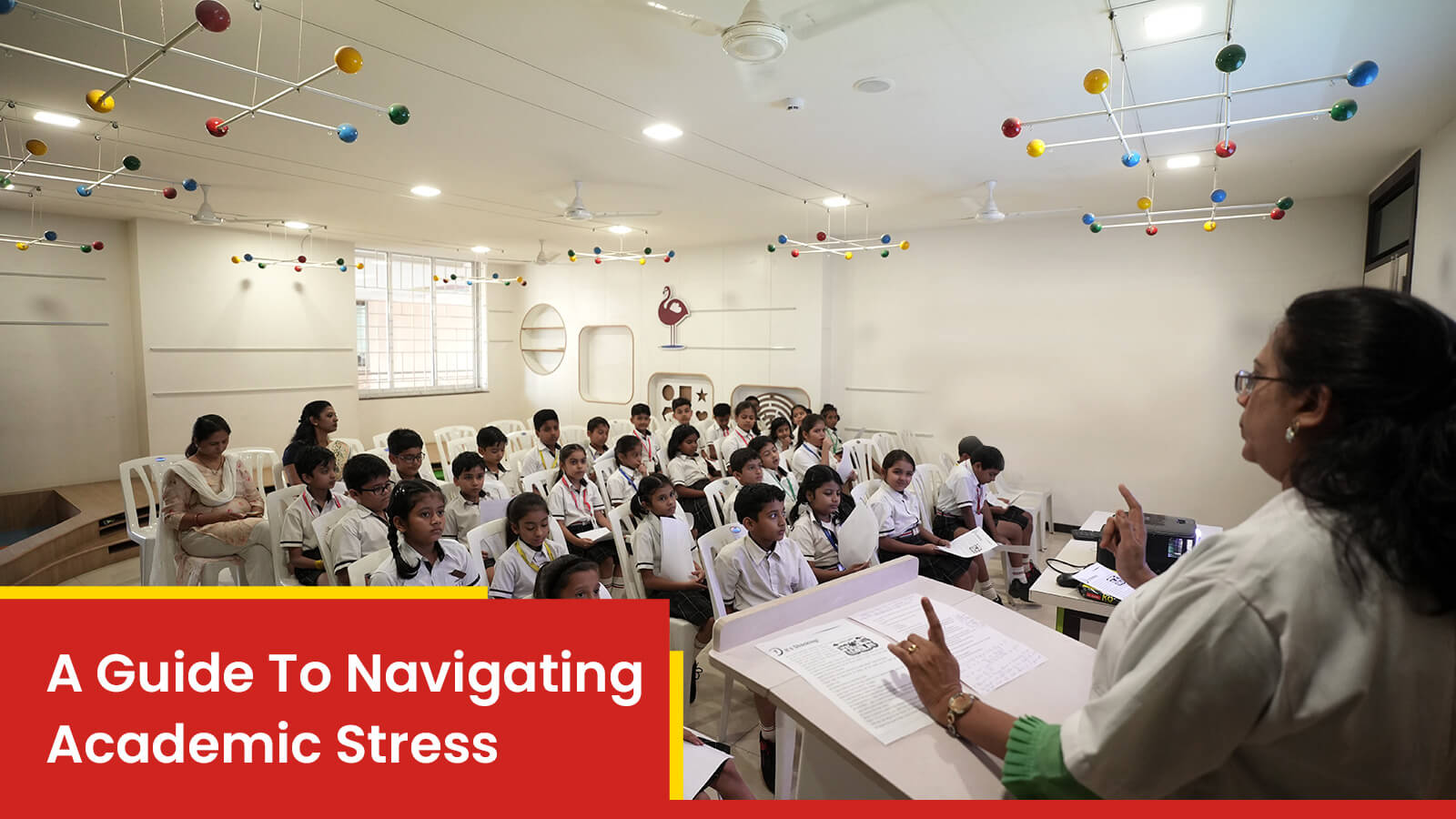A Guide To Navigating Academic Stress

Academic stress is a typical difficulty for students at all grade levels. As the responsibilities of schoolwork, extracurricular activities, and future goals increase, stress management becomes essential to sustaining both mental health and academic achievement. At Dhruv Global School, recognized as one of the leading CBSE schools in Pune, we understand the importance of addressing academic stress proactively.
This guide provides practical techniques for students and parents to properly manage academic stress and establish a balanced approach to school.
Strategies to Manage Academic Stress
- Develop a structured study plan
A well-organized study schedule is essential for properly handling academic commitments.
- Set clear goals: Define what has to be done in each study session. Breaking down jobs into manageable portions can make them less intimidating.
- Prioritize tasks: Prioritize the most important jobs and projects. Keep track of deadlines with tools such as to-do lists or digital calendars.
- Allocate Time Wisely: Set aside certain hours to study, complete schoolwork, and take breaks. Avoid cramming and schedule enough time for relaxation and recreational activities.
- Adopt Effective Study Techniques
Using efficient study techniques can improve learning and minimize stress. Here are some ideas suggested by our educators:
- Active learning: Active learning involves engaging with the information through discussion, teaching others, or applying principles in real-world circumstances. This method helps to strengthen understanding and retention.
- Regular Review: Instead of waiting until the last minute to revise, review content on a regular basis to develop a firm foundation and lessen exam anxiety.
- Use Study Aids: Use flashcards, mind maps, and summary notes to simplify complex concepts and increase memory.
- Develop Healthy Lifestyle Habits
Physical well-being has a substantial impact on mental health and academic achievement. Encourage students to develop the following habits:
- Exercise: Regular exercise reduces stress chemicals and improves general happiness. Aim for at least 30 minutes of activity on most days of the week.
- Balanced Diet: A proper diet improves cognitive function and energy levels. Include a variety of fruits, vegetables, whole grains, and proteins in your diet.
- Adequate Sleep: Quality sleep is required for cognitive processing and emotional regulation. Establish a consistent sleep schedule, aiming for 7-9 hours of rest per night.
- Promote Open Communication
Maintaining clear paths of communication with teachers, parents, and peers can help reduce stress.
- Seeking Support: Students should feel comfortable approaching teachers or counselors for academic or emotional support. Open debates can provide useful tactics and solutions.
- Collaborative Learning: Study groups and peer support can help bring new insights and lessen feelings of loneliness. Collaborating with classmates can make learning more pleasurable and stress-free.
- Practice stress-relieving techniques
Incorporating stress-relief practices into everyday routines can help manage anxiety and keep a positive attitude.
- Mindfulness and meditation: It can help you relax and focus. Simple breathing techniques and guided meditation can be useful tools.
- Hobbies and Leisure Activities: Hobbies or leisure pursuits can provide much-needed relief from academic stress. Developing interests outside of academics, such as reading, painting, or playing a musical instrument, might improve general well-being.
- Positive self-talk: Encourage positive self-talk and affirmation. Replacing negative ideas with positive comments might help you gain confidence and reduce stress.
- Seek Professional Help if Needed
Professional support provides essential tools and strategies to manage stress effectively and ensure a healthier, more balanced approach to academics.
- Counseling Services: If academic stress becomes overwhelming, consult a school counselor or a mental health professional. They can give stress-management skills as well as emotional support.
- Academic Tutoring: If you are suffering with a specific subject, consider using academic tutoring services. Additional assistance can help clarify topics and increase comprehension.
Managing academic stress requires an integrated approach that involves good preparation, healthy behaviors, and available resources. Students can better handle academic challenges by developing disciplined study regimens, using stress-relief techniques, and utilizing accessible school resources. At Dhruv Global School, recognized as one of the best CBSE schools in Pune, we are committed to providing comprehensive support to ensure students thrive academically and personally.
